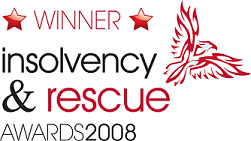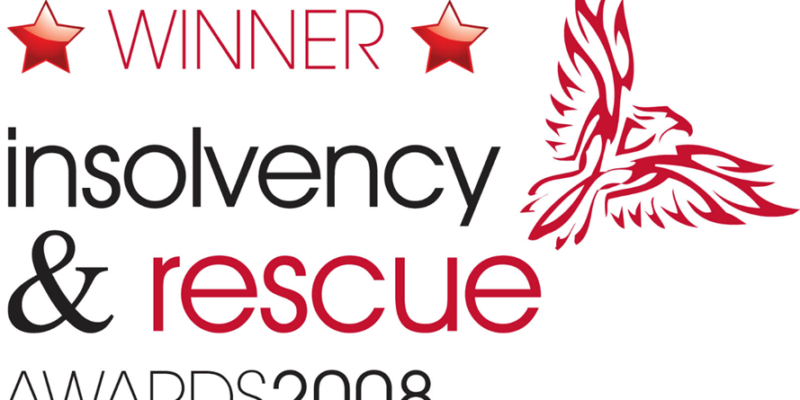- Uop past midnight. 3am feeding. 5am hurts. Back to bed? #
- Stayed up this morning and watched Terminator:Salvation. AWAKs make for bad plot advancement. #
- Last night, Inglorious Basterds was not what I was expecting. #
- @jeffrosecfp It's a fun time, huh. These few months are payment for the fun months coming, when babies become interactive. 🙂 in reply to jeffrosecfp #
- RT @BSimple: RT @bugeyedguide: When we cling to past experiences we keep giving them energy…and we do not have much energy to spare #
- RT @LivingFrugal: Jan 18, Pizza Soup (GOOOOOD Stuff) http://bit.ly/5rOTuc #budget #money #
- Free Turbotax for low income or active-duty military. http://su.pr/29y30d #
- To most ppl,you're just somebody [from casting] to play the bit part of "Other Office Worker" in the movie of their life http://su.pr/1DYMQZ #
- RT @MoneyCrashers: Money Crashers 2010 New Year Giveaway Bash – $8,300 in Cash and Amazing Prizes http://bt.io/DQHw #
- RT: @flexo: RT @wisebread: Tylenol, Motrin, Rolaids, and Benadryl RECALLED! Check your cabinets: http://bit.ly/4BVJfJ #
- New goal for Feb. 100 pushups in 1 set. Anyone care to join me? #
- RT @BSimple: Your future is created by what you do today, not tomorrow"— Robert Kiyosaki So take action now. #
- RT @hughdeburgh: "Everything you live through helps to make you the person you are now." ~ Sophia Loren #
- Chances of finding winter boots at a thrift store in January? Why do they wear our at the worst time? #
- @LenPenzo Anyone who make something completely idiot proof underestimates the ingenuity of complete idiots. in reply to LenPenzo #
- RT @zappos: "Lots of people want to ride w/ you in the limo, but what you want is someone who will take the bus w/ you…" -Oprah Winfrey #
- RT @chrisguillebeau: "The cobra will bite you whether you call it cobra or Mr. Cobra" -Indian Proverb (via @boxofcrayons) #
- RT @SuburbanDollar: I keep track of all my blogging income and expenses using http://outright.com it is free&helps with taxes #savvyblogging #
- Reading: Your Most Frequently Asked Running Questions – Answered http://bit.ly/8panmw via @zen_habits #
Focusing on the Now

My company uses a service called KnowYourCompany, that sends three emails each week to the entire staff. Each email asks a question that the staff can either respond to publicly, or just to the company leadership team.
The questions follow a formula.
On Monday, we get an email asking what we are working on. This allows us to see what everyone is doing, and in theory, makes offering your skills easier to do because you can see what you might be able to help with.
On Wednesday, the question is something about the company or our interaction with the company. One week this question was as simple as “Are there any company policies that aren’t completely clear?”
On Friday, the question is more personal. It’s a getting-to-know-each-other question. Last Friday’s question was “What’s something you want to do in the next year that you’ve never done before?”
I found that I don’t have an answer.
Right now, I don’t have any long-term goals. Recently, my personal life has been complicated enough that the idea of planning for later this year–much less the next 5 or 10 years–is more than I can deal with.
My side hustle goals are focused entirely on what needs to happen in the next week. Work goals are only a month out. My personal goals involve making it through the next few days without letting anything collapse.
Sometimes, life kicks you in the crotch so hard, you have to let the future worry about itself while you focus on what’s happening right now. Without a functional present, the future doesn’t matter. You have to focus on the Now first, or everything else evaporates.
It’s not a great situation, but it is an interesting perspective. I’ve spent so much of the last decade focusing on what comes next that what’s happening right now has suffered.
Focus on Now. Sometimes, What’s Next can take care of itself for a while.
The 10-Step Saving Action Plan

- Image via Wikipedia
Getting started saving money is hard. It’s easy to get used to instant gratification and impulse purchases. Postponing material fulfillment takes discipline and deferred enjoyment. I don’t like deferring my enjoyment, but I do it. The path to successful savings isn’t always easy, but it is gratifying, when you give it the time and effort required to see actual results.
Here’s the 10 step plan to successful savings:
- Recognize the need. If you don’t understand why you need to save, you won’t do it for long. If you think it’s more important to buy a new car, a new TV, or the fanciest portable gadget out there, you won’t prioritize saving. You need to think about how saving a solid nest egg will benefit you and your future self, before you can be sure you will stick to your savings plan.
- Pay yourself first. When you get paid, whether it’s a traditional paycheck or a surprise windfall, immediately drop 10-15% in a savings account you keep completely off-limits, no exceptions. If you make this an unbreakable habit, you will have a surprising amount of money in a surprisingly short amount of time.
- Prioritize. Prioritize your expenses. If you don’t care about a particular optional expense, get rid of it! Examine the rest of the bill for things you can trim. Do you really need 5000 channels? Can you make do with just 300 specialized versions of ESPN?
- Compare prices. If you buy from the lower-priced store, you save money. No s****, huh? Doing this requires that you forgo impulse purchases and do some research before you buy most things. Shop online, at least enough to know what you should be paying.
- Save your change. When you get home at night, put your change in a jar. When the jar gets full, bring it to the bank. A medium-sized mason jar full of silver-colored coins will bring in about $100. Put that directly into savings.
- Save your dollars. I pay cash for everything I buy in person. When my money clip gets too many one-dollar bills, I put them all into a box. This would be a phenomenal addition to my savings account, if I weren’t planning to use it for spending money on our vacation next month.
- Save the extra $$. If you get unexpected money, don’t let it enter you regular cash flow. Get it straight into a savings account. You weren’t expecting it, so you won’t miss it.
- Save the new $$. Save your raise. If you start making more money, save the difference. Like #7, you’ll never miss it. Don’t give yourself a chance to expand your lifestyle.
- Club the naysayers in the knees. There will always be people who denigrate your choices. If they tell you it’s crazy to live within your means, or get upset because you don’t want to go to the fancy restaurant, screw ’em. Not literally of course. We’re trying to apply a punishment here, after all. If they don’t like your choice, kick them in the shins.
- Reward yourself. Don’t be afraid to schedule rewards at certain savings goalposts. When you get $5000 saved, let yourself take $300 to the high-end steakhouse. When you get $10000, look at buying the camera you want. Give yourself a reason to stay motivated. It is, after all, your money.
This is how we’ve managed to build up a small-but-comfortable emergency fund and tackle a nice chunk of our debt. Do you have plan to save?
Resolutions That Don’t Suck

I’m not a huge fan of New Year’s resolutions. Generally speaking, if you don’t have the willpower to do something any other time of the year, you probably won’t grow that willpower just because the last number on the calendar changed.
Seriously, if you’ve got something worth changing, change it right away, don’t wait for a special day.
That said, this is the time of the year that many people choose to try to improve…something. Some people try to lose weight, other people quit shooting meth into their eyeballs, yet others(the ones I’m going to talk about) decide it’s time to get out of debt.
Now most people are going to throw out some huge and worthless goals like:
- I need to lose some weight.
- I need to save more.
- I need to be a better person.
- I need to shoot less meth into my eyeball.
The problem with goals like that is the definitions. What is “some”, “more”, “better”, or “less”? How do you know when you’ve won.
It’s better to take on smaller goals that have real definitions.
Try these:
- I’m going to lose 20 pounds.
- I’m going to save $1200.
- I need to stop locking my children in the closet when I go to the movies.
- I am never ever going to shoot meth into my eyeball again.
But Jason, I hear you saying, where am I going to find $1000 to save? Well, Dear Reader, I’m glad you asked. Next time though, could you ask in a way that others can hear so my wife doesn’t feel the need to call the nice men in the white coats again?
Let’s break that goal down even further.
Instead of saving $1200, let’s call it $100 per month. That’s a bite-sized goal. Some people don’t even have that to spare, so what can they do?
Let’s make that resolution something like “I’m going to have frozen pizza instead of my regular weekly delivery.” If your house is anything like mine, that brings a $60 pizza bill down to $15 for some good frozen pizza for a savings of $45. If you order pizza once a week, that’s $180 saved each month, double your goal. That’s a win with very little suffering.
Now, you can take that extra $80 that you hadn’t even planned for and throw it at your credit cards. That’s a free payment every month. Before you know it, you’ll have your cards paid off and a decent savings account.
Then you can thank me because I made it all possible.
You’re not alone: Help with Bankruptcy & Debt
 Frequently regarded as an indication of personal failure, bankruptcy is still today widely considered a highly sensitive topic. Many will even feel uneasy speaking about their debt problems with close relatives and friends. If you, too, are facing serious debt issues and are in need of help, rest assured you are not the only one afraid of sliding into bankruptcy. In fact, thousands of households in the UK are threateningly close to insolvency and most are experiencing the exact same feelings of shame and despair. This perfectly understandable reaction has, meanwhile, unfortunately overshadowed the fact that there are hands-on practical steps especially designed to help you resolve your debt situation.
Frequently regarded as an indication of personal failure, bankruptcy is still today widely considered a highly sensitive topic. Many will even feel uneasy speaking about their debt problems with close relatives and friends. If you, too, are facing serious debt issues and are in need of help, rest assured you are not the only one afraid of sliding into bankruptcy. In fact, thousands of households in the UK are threateningly close to insolvency and most are experiencing the exact same feelings of shame and despair. This perfectly understandable reaction has, meanwhile, unfortunately overshadowed the fact that there are hands-on practical steps especially designed to help you resolve your debt situation.
There is a good reason why addressing the issue of bankruptcy has an urgent ring to it. Recent statistics indicate a steady rise of individual company insolvencies in the UK, particularly since the 1990s. According to the British Insolvency Service, the rate of bankruptcy on an individual level has risen from a total of 24,441 in 1997 to staggering 106,645 in 2007 in England and Wales. Alarmingly, the peak doesn’t seem to have been reached yet. As respected online-service ‘This is Money’ reports, ‘record numbers of people were declared insolvent in England and Wales’ in 2010, further noting that ‘an all-time high of 135,089 people were declared insolvent in 2010—0.7% up on the total for 2009.’ As you can gather from these numbers, you are certainly not alone with your debt problems: Around 140,000 adults are facing bankruptcy as a direct consequence of mishandling their debt issues, which translates to 385 new cases per day. It has already been pointed out that ‘the number of victims will be enough to fill both the London 2012 Olympic stadium and the Emirates Stadium.’
So, if you’re facing bankruptcy, there’s no need to feel ashamed. By taking an active stance and addressing your debt issues, you may even be able to avert insolvency altogether. With years of experience and several distinctions to our credit, the Debt Advisory Line have established themselves as leading experts in the field of debt management. We’ve already helped thousands of individuals and households who thought bankruptcy was their only option. Settling debt issues is our forte – and you shouldn’t settle with anything less.
This post brought to you by Debt Advisory Line.
Credit Cards: How to Pick a Winner
We live in a decidedly credit-centric culture. Whip out cash to pay for $200 in groceries and watch the funny looks from the other customers and the disgust from the clerk. It’s almost like they are upset they have to know how to count to run a cash register.
If someone doesn’t have a credit card, everyone wonders what’s wrong, and assumes they have terrible credit. That’s a lousy assumption to make, but it happens. For most of the last two years, I shunned credit cards as much as possible, preferring cash for my daily spending. Spending two years changing my spending habits has made me comfortable enough to use my cards again, both for the convenience and the rewards.
Having a decent card brings some advantages.
Credit cards legally provide fraud protection to consumers. Under U.S. federal law, you are not responsible for more than $50 of fraudulent charges. many card issuers have extended this to $0 liability, meaning you don’t pay a cent if your card is stolen. Trying getting that protection with a wallet full of cash.
The fraud protection makes it easier to shop online, which more people are doing every day. At this point, there is no product you can buy in person that you can’t get online, often cheaper. How would you order something without a credit card? Even the prepaid cards you can buy and fill at a store will often fail during an online transaction because there is no actual person or account associated with the card. The “name as it appears on the card” is a protective feature for the credit card processors and they dislike accepting cards without it.
If you’re going to use a credit card, you need to make a good choice on which credit card to get. There are a few things to check before you apply for a card.
Annual fee. Generally, I am opposed to getting any card with an annual fee, but sometimes, it’s worth it. If, for example, a card provides travel discounts and roadside assistance with its $65 annual fee, you can cancel AAA and save $75 per year. A good rewards plan can balance out the fee, too. I’m using a travel rewards card that has a 2% rewards plan. That’s 2% on every dollar spent, plus discounts on some travel purchases. In a few months, I’ve accumulated $500 of travel rewards for the $65 fee that was waived for the first year. The math works. A card that charges an annual fee without providing services worth several times that fee isn’t worth getting.
Interest rate. This should be a non-issue. You should be paying off you card completely every month. In a perfect world. In the real world, sometimes things come up. In my case, I was surprised with a medical bill for my son that was 4 times larger than my emergency fund. It went on the card. So far, I’ve only had to pay one month’s interest, and I don’t see the balance surviving another month, but it’s nice that I’m not paying a 20% interest rate. Unfortunately, as a response the CARD Act, the days of fixed rate 9.9% cards seems to be over.
Grace period. This is the amount of time you have when the credit card company isn’t charging you interest. Most cards offer a 20-25 day grace period, but still bill monthly. That means that you’ll be paying interest, even if you pay your bill on time. To be safe, you’ll need to either find a card that has a 30 day grace period, or pay your balance off every 15-20 days. Some of the horrible cards don’t offer a grace period of any length. Avoid those.
Activation fees. Avoid these. Always. There’s no card that charges an activation fee that’s worth getting. An activation fee is an early warning sign that you’ll be paying a $200 annual fee and 30% interest in addition to the $150 activation fee.
Other fees. What else does the card charge for? International transactions? ATM fees? Know what you’ll be paying.
Service. Some cards provide some stellar services, include concierge service, roadside assistance, and free travel services. Some of that can more than balance out the fees they charge. My card adds a year to the warranty of any electronics I buy with it, which is great.
Credit cards aren’t always evil, if you use them responsibly. Just be sure you know what you’re paying and what you’re getting.
What’s in your wallet?




